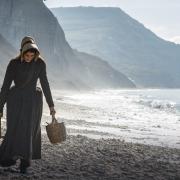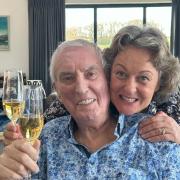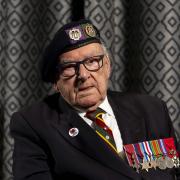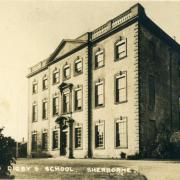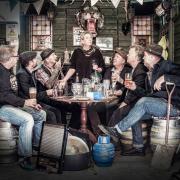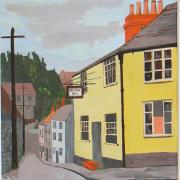Forty years ago, my wife Sarah and I drove with our young children across the mid-west of America. In a small rural town in Nebraska, we stopped to fill up with petrol. Recognising my accent, the garage owner asked where we came from. 'Dorset,' I said, not thinking he would have heard of it. He shook his head, 'Well I'll be damned,' he replied, smiling warmly, 'I was there once. Do you know a place called Weymouth?' 'Yes, of course,' I said. 'Well, I sailed from there with the 3rd Armoured in June '44,' he said.
Over lunch he told us that he had just turned 20 when he boarded a landing craft in Portland bound for the Normandy beaches. He went on to fight his way across Europe, crossing the Rhine in the spring of 1945, before finally returning home, marrying his sweetheart, raising three children, and building up a small chain of petrol stations in his home state. Now over 60, he told his story with quiet modesty, only pausing when recalling the comrades he had lost all those years ago. It was a humbling moment, and one that has come back to me as we approach the 80th anniversary of D-Day.
Listening to Donald Trump's tirade about pulling the United States out of NATO and leaving Europe to fend for itself, I was reminded of that ex-GI and the part the Americans played in helping win the Second World War. It is impossible to over-estimate the impact of their arrival. Over half a million American servicemen embarked from Weymouth and Portland between D-Day and the end of the war. By autumn 1943 advance units were building camps, hospitals, supply depots and air strips. Bournemouth's hotels were requisitioned as recreation messes. The US Navy established a base in Poole, where a flotilla of coastguard rescue cutters soon lay eight deep alongside the quay. Three squadrons of US fighter-bombers joined the Hurricanes at RAF Warmwell. Country lanes echoed to convoys of jeeps, tanks, half-tracks, amphibious vehicles and trucks as the build-up gathered pace. Woods and fields became huge parking lots shrouded with camouflage netting. Private houses were requisitioned to provide billets. Church and village halls became canteens. Portland and Weymouth looked on apprehensively as their harbours filled with US naval shipping and landing craft. Training was round-the-clock. Studland became the backdrop to live-fire landings. US Rangers scaled cliffs to rehearse the capture of German gun emplacements. Infantrymen crawled along thick West Dorset hedgerows similar to those in Normandy.
Dorset became the base of the crack 1st Infantry Division, nicknamed 'The Big Red One', with Langton House near Blandford its Divisional Headquarters. Generals Eisenhower and Montgomery were visitors, whilst entertainment for their fellow countrymen was provided by Bob Hope and Glen Miller. The Division's 14,000 soldiers were scattered across south Dorset. Parnham House near Beaminster became the HQ of the 16th Infantry Regiment, whilst the headquarters of the 18th and 26th were at Ilsington House, Puddletown, and Binnegar Hall near Wareham. An attic at Parnham, guarded day and night, was converted into the planning room for the landings on Omaha beach.
Dorset had never seen anything like this Yankee invasion. Initial wariness dissolved as the county threw open its doors – putting on dances and tea parties and welcoming GIs into their homes. The Americans were equally generous, sharing their seemingly limitless supplies with people grown used to years of hardship. Their pockets filled with cash and long-forgotten luxuries, women could not help but be dazzled by these gum-chewing, wolf-whistling young men. Relationships with local girls were inevitable, courtship turning into hurried marriages as D-Day approached.
In late May 1944 the first 'GI Brides' kissed their new husbands goodbye. Comfortable billets were exchanged for nights under canvas in sprawling marshalling zones close to the coast. Movements were restricted, a curfew imposed. Tanks and field guns were lined nose-to-tail along every street. As the fickle weather of early June gradually worsened, delaying D-Day, the loading at the embarkation ports got underway. 'All night long no sound was heard but the clatter of army boots on paved streets, the "Hup, two three four" of Army sergeants, the rattle of vehicles and the roar and putter of engines... no music, no bands: only women and old men offering a last drink of tea and a hearty "God bless you" to the soldiers. Thus, efficiently and in silence, supported by the prayers of the free world, began the great invasion to crush Germany and liberate France'. Thus wrote the author of the official US history of the war. Of course, British and other allied forces were crucial to the success of D-Day, but once in a while it is good to be reminded that we are also indebted to those young GIs who sailed for Normandy 80 years ago this June.




